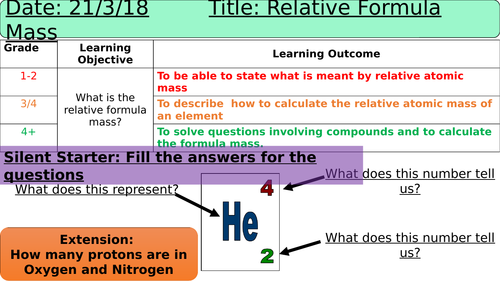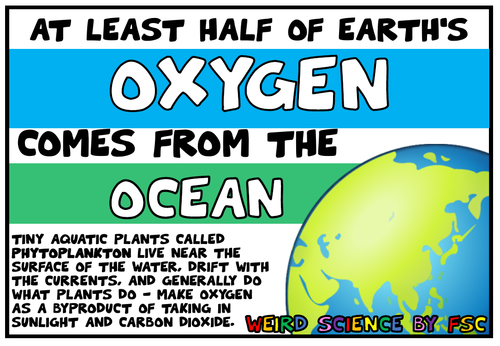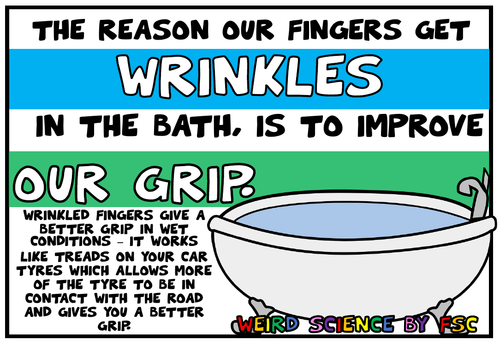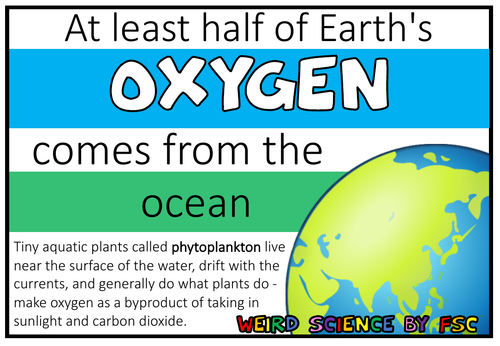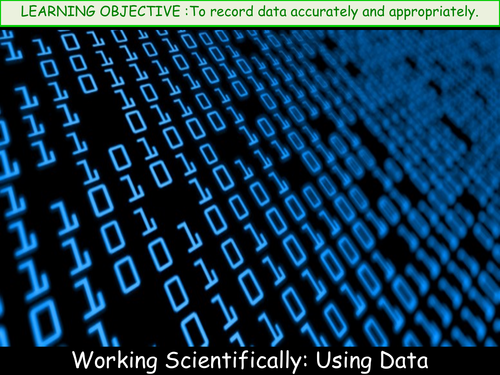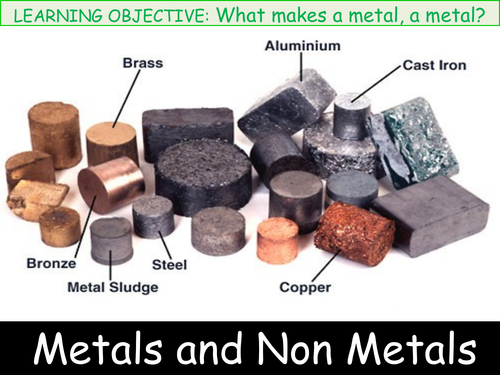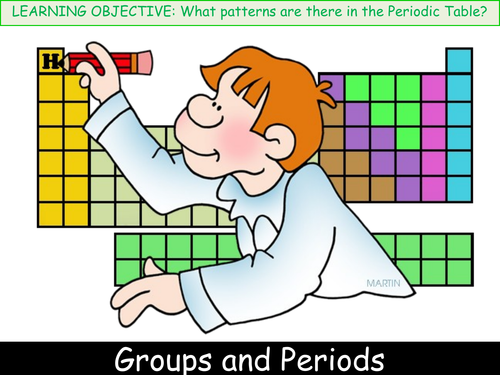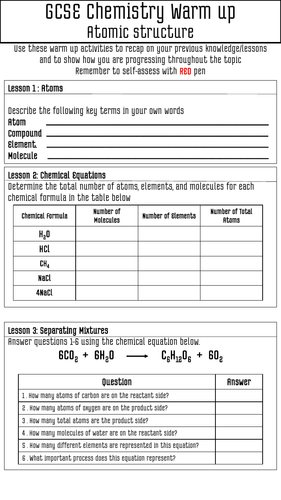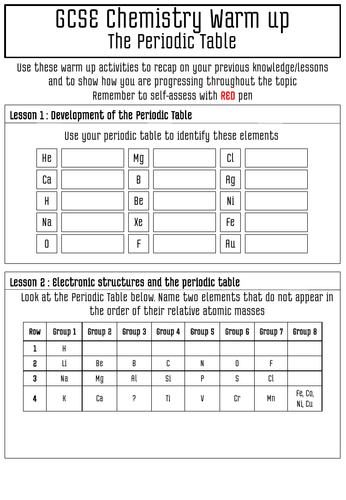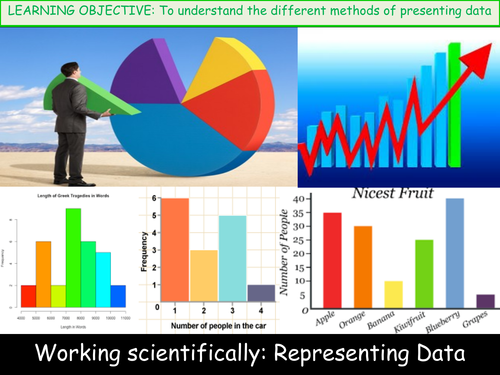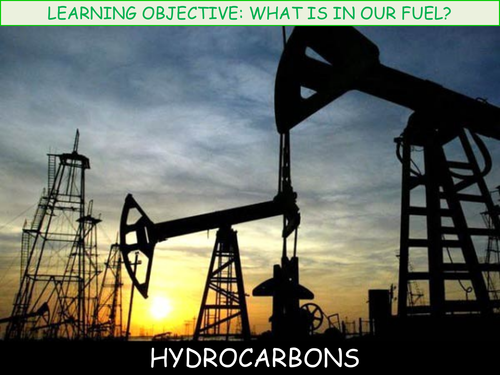
45Uploads
36k+Views
17k+Downloads
Chemistry

Relative Atomic + Formula Mass
A lesson on the GCSE Quantitative Chemistry directed at a low ability Yr 10 Science class. There are some further activities to stretch learners.
The presentation includes support and extension tasks on all relevant slides. collaborative learning opportunities.
A rally coach worksheet included + a homework

Weird Fact Science Posters Pack 1 - 15 POSTERS INCLUDED
Inspire your students with weird and wacky science facts. These can be used as a simple display or a starting discussion point if you wish. these are suitable for all ages but geared towards 11-16.
The document is formatted to print at A4.
All feedback is greatly appreciated.
INCLUDES 15 Posters
More Poster packs are currently being designed.
Pack 2 AVAILABLE HERE: https://www.tes.com/teaching-resource/weird-fact-science-posters-pack-2-11963854

Weird Fact Science Posters Pack 2 - 15 POSTERS INCLUDED
Inspire your students with weird and wacky science facts. These can be used as a simple display or a starting discussion point if you wish. these are suitable for all ages but geared towards 11-16.
The document is formatted to print at A4.
All feedback is greatly appreciated.
More Poster packs are currently being designed.
PACK 1 AVAILABLE HERE:https://www.tes.com/teaching-resource/weird-fact-science-posters-pack-1-15-posters-included-11963275

Free Weird Fact Science Posters
Inspire your students with weird and wacky science facts.
These can be used as a simple display or a starting discussion point if you wish. these are suitable for all ages but geared towards 11-16.
The document is formatted to print at A4.
All feedback is greatly appreciated.
More Poster packs are currently being designed.
Pack 1 is AVAILABLE: https://www.tes.com/teaching-resource/weird-fact-science-posters-pack-1-11963275

Working Scientifically: Using data in tables
This is the first lesson in the Working Scientifically topic of Activate 2, directed at a mixed ability Yr 8 Science class.
The presentation includes a challenge question, support and extension tasks on all relevant slides. collaborative learning opportunities.
A worksheet including an outline of a suitable table to scaffold those who will struggle with the drawing speed or EAL
Success Criteria:
To identify the most important aspects of a results table.
To understand how to organise data in a table format.
To analyse the data and suggest improvements.
Please rate and comment on what you find useful so I can alter my lessons in future.
Many thanks

C2 Chapter 1.1 Activate 2 Metals and Non-Metals
This is the first lesson in the Periodic Table topic of Activate 2, directed at a mixed ability Yr 8 Science class with EAL activity and picture clues to support.
The presentation includes a super challenge questions, support and extension tasks on all relevant slides. collaborative learning opportunities.
All worksheets, scaffolded questions and challenging sections to stretch higher ability students are included in the PPT
Success Criteria:
Review you knowledge of common chemical elements
Identify properties of metals and non-metals
Compare the physical appearance and material behaviour of metals and non-metals
Please rate and comment on what you find useful so I can alter my lessons in future.
Many thanks

C2 Chapter 1.2 Activate 2 Group and Periods
This is the second lesson in the Periodic Table topic of Activate 2, directed at a mixed ability Yr 8 Science class with EAL activity and picture clues to support.
The presentation includes a super challenge questions, support and extension tasks on all relevant slides. collaborative learning opportunities.
All worksheets, scaffolded questions and challenging sections to stretch higher ability students are included in the PPT
Success Criteria:
The state the difference between a group and a period in the table of elements
Use patterns to predict properties of elements
Compare patterns in properties in group and elements
Please rate and comment on what you find useful so I can alter my lessons in future.
Many thanks

C1 Atomic Structure Starter/Warm up
Starter activities for the entire topic of C1 GCSE chemistry (AQA)
Sub topics include:
Atoms
Chemical Equations
Separating Mixtures
Fractional Distillation and Paper Chromatography
History of the atom
Structure of the atom
Ions, atoms and isotopes
Electronic structures
Resources produced to use the starter as a recap from the previous lesson.
Suitable for a catch up resource, or GCSE revision.
Bundle

Biology, Chemistry, Physics 1 starter tasks
Starter activities for the entire topic of B1,C1 and P1 GCSE Biology, Chemistry and Physics (AQA)
Sub topics include:
Biology
The world of the microscope
Animal and Plant Cells
Eukaryotic and Prokaryotic
Specialisation in cells
Diffusion
Osmosis
Osmosis in Plants
Active Transport
Exchanging Materials
Chemistry
Atoms
Chemical Equations
Separating Mixtures
Fractional Distillation and Paper Chromatography
History of the atom
Structure of the atom
Ions, atoms and isotopes
Electronic structures
Physics
Changes in Energy Stores
Conservation of Energy
Energy and work
Gravitational Potential Energy Stores
Kinetic Energy and Elastic Energy Stores
Energy Dissipation
Energy and Efficiency
Electrical appliances
Energy and Power
Resources produced to use the starter as a recap from the previous lesson.
Suitable for a catch up resource, or GCSE revision.

C2 Chemistry GCSE AQA starter Warmups
Starter activities for the entire topic of C2 GCSE Chemistry (AQA)
Resources produced to use the starter as a recap from the previous lesson.
Suitable for a catch up resource, or GCSE Chemistry revision
Topics C2.1 - C2.5 covered

Working Scientifically: Representing Data
This is the second lesson in the Working Scientifically topic of Activate 2, directed at a mixed ability Yr 8 Science class.
The presentation includes a challenge question, support and extension tasks on all relevant slides. collaborative learning opportunities.
Success Criteria
To identify different methods of presenting data.
To plot bar charts and/or frequency diagrams accurately.
To plot scatter diagrams or line graphs accurately.
Please rate and comment on what you find useful so I can alter my lessons in future.
Many thanks

Lesson Powerpoint Template
Creating consistent lessons can be a time consuming process. I have compiled a series of slides with 100% editable context to personalise it for your students. These have been designed from a high School Science perspective however are compatible with any subject and/or any topic.
Many of the slides include space to add Support or Extension tasks into aid learners, as well as animated effects to engage like timers, true/false to red and green.
There is a section to make sure the learning objective is visible on slides at all times. This can be altered through the Slide Master function on ppt

Lesson 1 Crude Oil and Hydrocarbons
This is the first lesson in the Crude Oil topic of Trilogy GCSE Chemistry, directed at a low ability Yr 11 Science class.
The presentation includes support and extension tasks on all relevant slides. collaborative learning opportunities.
A worksheet includes a worked example and scaffolded questions
Learning Outcomes:
To describe what a crude oil is made up of
Suggest a suitable formula rule for a hydrocarbon
Use formula rules to workout the number of atoms
Please rate and comment on what you find useful so I can alter my lessons in future.
Many thanks

